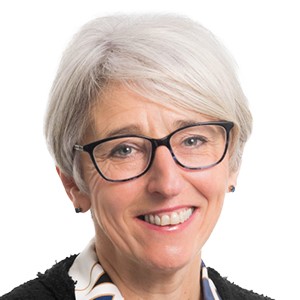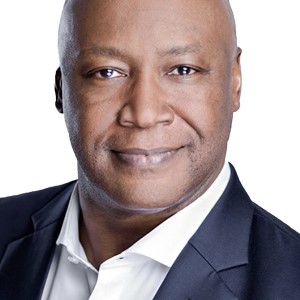When under pressure, businesses risk turning inwards as leaders focus on their operations and try to stop any fires from spreading. HRDs can play a pivotal role at this time by continuing to look outwards for opportunities that will benefit their people and wider stakeholders.
Jamie Wilson, Managing Director of Group Services at Criticaleye, said, “The current economic and geopolitical instability is putting pressure on many organisations that were only just starting to recover from the effects of the global pandemic. For the HRD, this includes ongoing challenges around competition for talent, wage inflation and wellbeing.
“To remain competitive over the longer term, human resources directors must learn from what the best businesses are doing and bring this insight to discussions at the top table.”
With this in mind, we spoke to leading HRDs about the approaches they are taking in their own organisations. This is what they had to say:
Genevieve Glover, HR Director at Barchester Healthcare, comments on how businesses can learn valuable lessons from other sectors.
Over the last two years, we've focused on the ‘higher purpose’ within the care sector. We’ve been very inward-looking as a business, while we ensure the safety of our residents, patients and staff during the pandemic. However, there are certain things we do now that we weren't even thinking about doing prior to COVID, whether that’s our remote-access life-enrichment activities or how we work from a corporate perspective. It's been a real catalyst for change.
Today, there's an opportunity for us to recruit talent from other sectors that are ahead of us in terms of their systems, operating models and use of data. There's also an opportunity for us to learn quickly from that and gain a fresh view on what we deliver.
My aspiration is to attract people from hotel or hospitality sectors because, alongside the person-centred care that we provide, that's effectively what we're offering. We're providing five-star hotel accommodation, excellent customer service and then delivering care and life-enrichment activities alongside this. Bringing operational experts in from other environments could be quite exciting in terms of our operating model and the delivery of service and care.
Agnieszka Tomczak, Chief HR Officer of Vesuvius, believes that leaders must look externally for solutions which match the needs and maturity of their organisation.
HR functions should keep pace, by scouting for and providing innovative solutions in their areas of expertise. We should be looking at all the new trends, tools, materials and practices, bringing them into the organisation and showing how they provide benefits.
I've seen some examples where people overwhelm an organisation with all of the new, fantastic stuff which doesn’t fit the current maturity level of the business. It has to be paced and tailored. It's more about staying informed and educated about what's happening but then making the right choices to move the organisation forward.
The ability to select, vet and check market, economic and external information is also a very important skill, which isn’t always present.
Being externally focused is about applying rigorous judgement, common sense, but also critical thinking and not just going with the flow. That's the role of every manager, not just the HR person.
Wesley Payne McClendon, Chair of The GROW Project Foundation & a Board Mentor at Criticaleye, advises businesses to use this disruptive period to ask how they can better leverage their human capital.
Organisations tend to become quite insular in the midst of volatility and uncertainty. They’re unlikely to put their toes into unchartered waters because, not only is the water cold, but there's likely to be an alligator waiting to snap their toe off.
HR is one of the few areas of business where, during a crisis, they want to keep themselves below the firing line. However, contrary to self-preserving wisdom, HR should be raising their head up and asking business leaders, “How can we create competitive advantage, be more strategically engaged and focused on helping the business find greater commercial value through its people?”
Leaders should use data and insights to predict how best to leverage people and structures across the organisation. For example, person X would actually be better at solving problem Y in circumstance Z, so let's move him or her to help ease the pressure. Or, let's step this person up and put them in a leadership role because that is what the organisation needs right now.
It's about having a granular, commercially-minded understanding of where human capital resources exist, how to leverage them effectively and enable HR professionals to have a far more strategic, profit-centred impact compared to an administrative, cost-containment role.
Karen McKeever, Chief People Officer of Drax Group, recognises that businesses must strike the right balance between having an external and internal perspective at a time of crisis.
Any organisation that has gone through a challenging period, either brought about by cultural, reputational or economic issues, does have to look inwards at what they're doing and ensure they are prioritising the protection of their people, their customers and their shareholders.
However, in an organisation like ours, we've needed to keep an eye on the external landscape too, because we are both influenced by and are influencers of the political landscape from a renewable energy perspective.
We are impacted by decisions that are made in Government around renewable energy, carbon capture and moving the country to zero carbon. So, it would have been remiss of us not to keep an eye on the external landscape for our shareholders, people and the purpose of the organisation.
There needs to be a balance. If you're focused on the economic environment and not on the impact that's having on the people in your organisation, then you're going to miss a trick in terms of what's going to help retain people and what's going to help attract them to the organisation.
If we think we've got all the answers to any situation we're facing, then we're effectively saying that we think we're the smartest people in the room. If we think we are the smartest people in the room then, at some point, we'll get overtaken by other people, other organisations and the other thinking that's going on.



